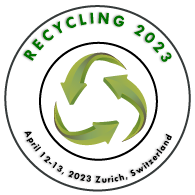THERMAL WASTE RECOVERY
Systems for recovering heat from waste. Capturing and transporting waste heat from a process using a gas or liquid back to the system as an extra energy source is one form of waste heat recovery . The energy source can be used to generate electrical and mechanical power as well as generate extra heat.
After the process's heat need has been met, any excess or waste heat is expelled as exhaust in many heat- and electricity-generating processes. Because heat is moved from higher to lower temperatures according to thermodynamic laws, the temperature of a process's waste heat is invariably lower than the temperature of the process itself. The temperature of the waste heat and the amount of heat produced are the two most important elements in assessing the feasibility of heat recovery. The heat-flux density (rate of heat flow per cross-sectional area), the nature of the surroundings, the temperature of the heat, and process-specific considerations—such as the pace of cooling, which in some industrial processes must be regulated.
Related Conference of THERMAL WASTE RECOVERY
THERMAL WASTE RECOVERY Conference Speakers
Recommended Sessions
- ADVANCED RECYCLING: PHYSICAL & CHEMICAL
- BIO- ELECTROCHEMICAL TREATMENT SYSTEM
- BIO-PLASTICS
- BIOREMEDIATION
- CHALLENGES IN COLLECTION & SEGREGATION OF PLASTICS WASTE
- CHEMICAL WASTE RECYCLING
- CIRCULAR ECONOMY FOR ELECTRIC VEHICLES (EV) BATTERIES
- CIRCULAR PLASTICS FOR PACKAGING
- E-WASTE
- FOOD AND AGRICULTURAL WASTE RECYCLING
- INDUSTRIAL WASTE RECYCLING
- METAL RECYCLING
- PAPER RECYCLING
- PLASTICS RECYCLING: CHALLENGES AND OPPORTUNITIES
- SOLID WASTE MANAGEMENT
- TECHNOLOGY & INNOVATION IN PLASTICS RECYCLING
- THERMAL WASTE RECOVERY
- WASTE RECYCLING AND MANAGEMENT
- WASTE WATER TREATMENT

